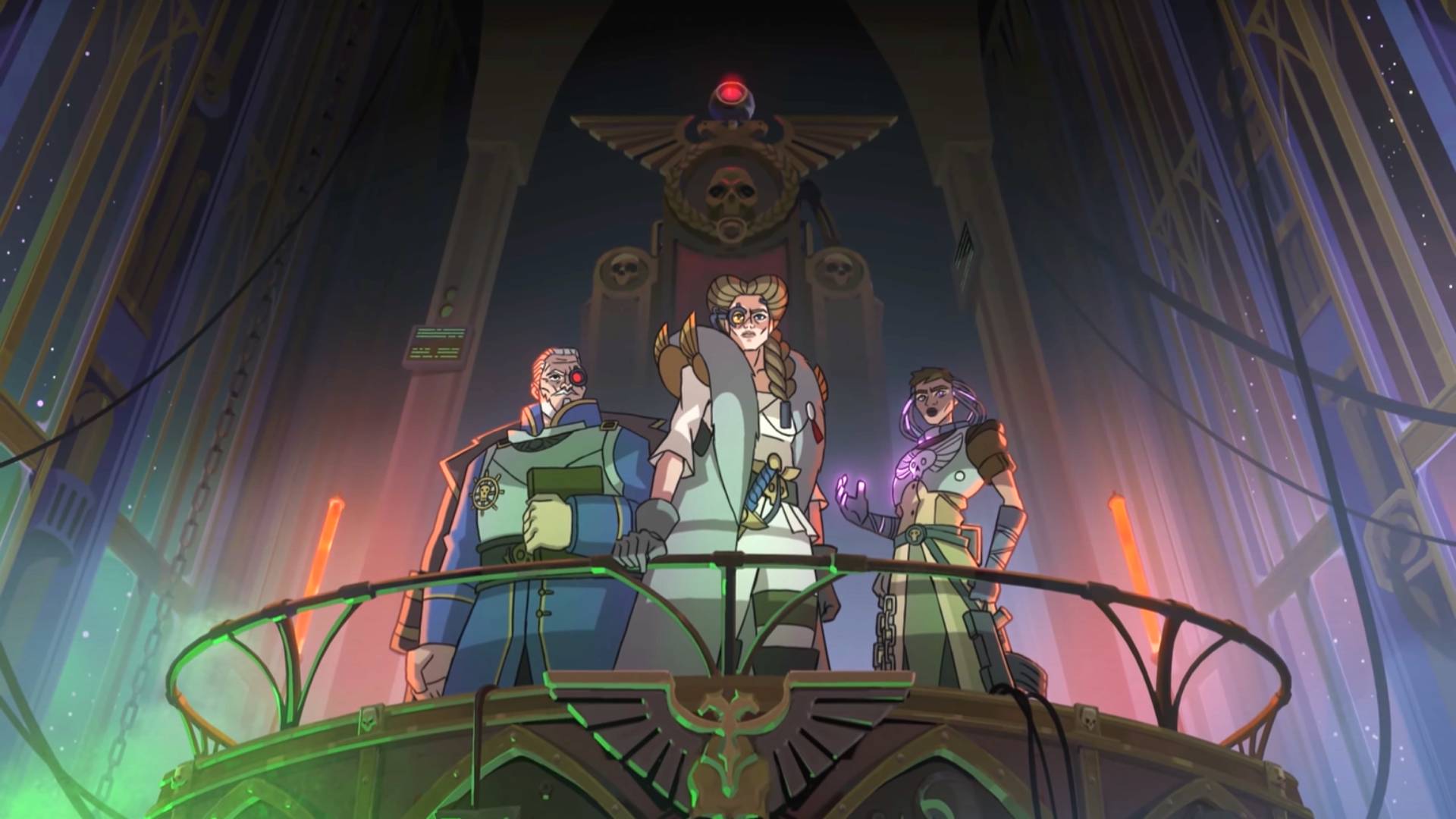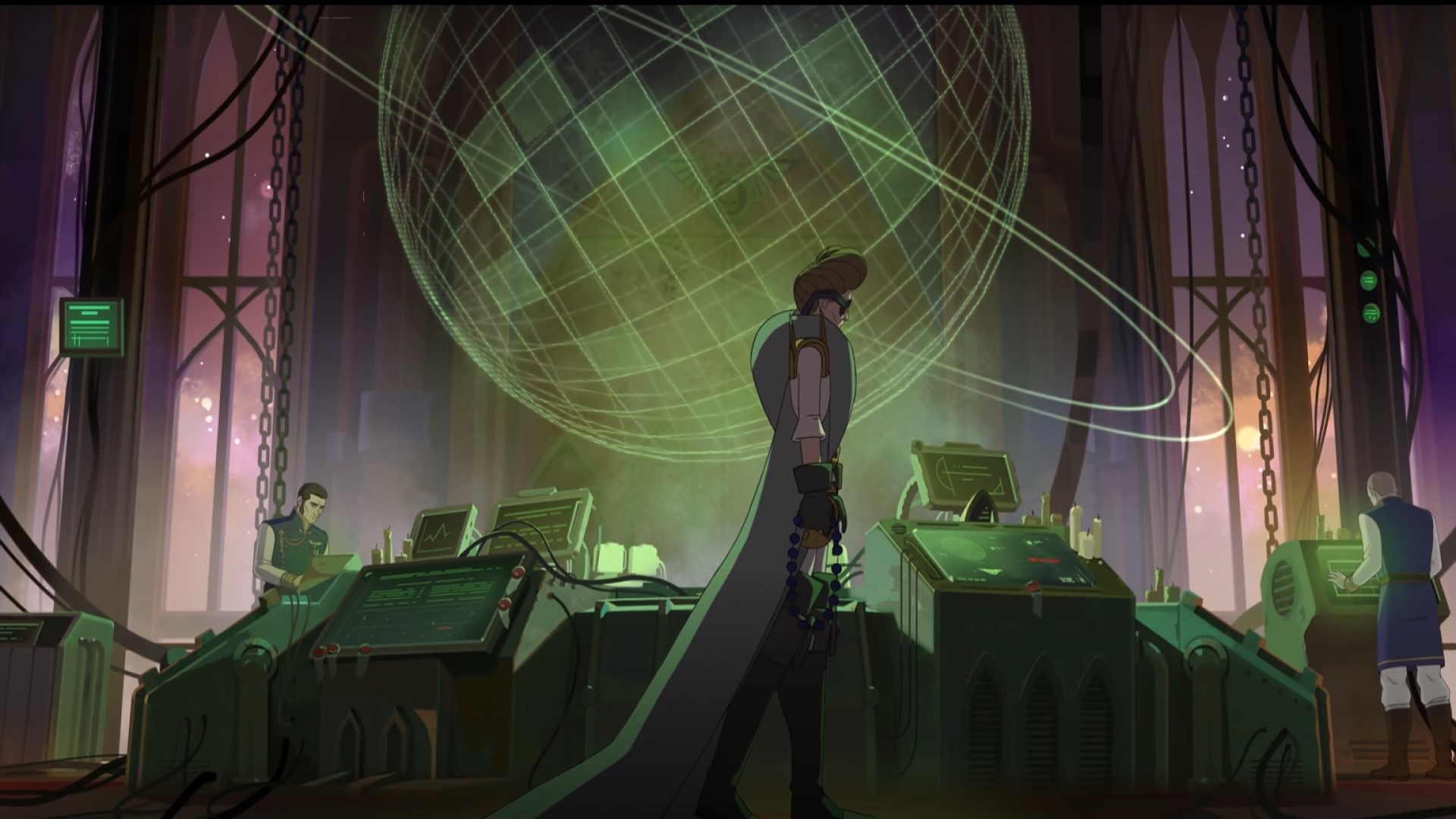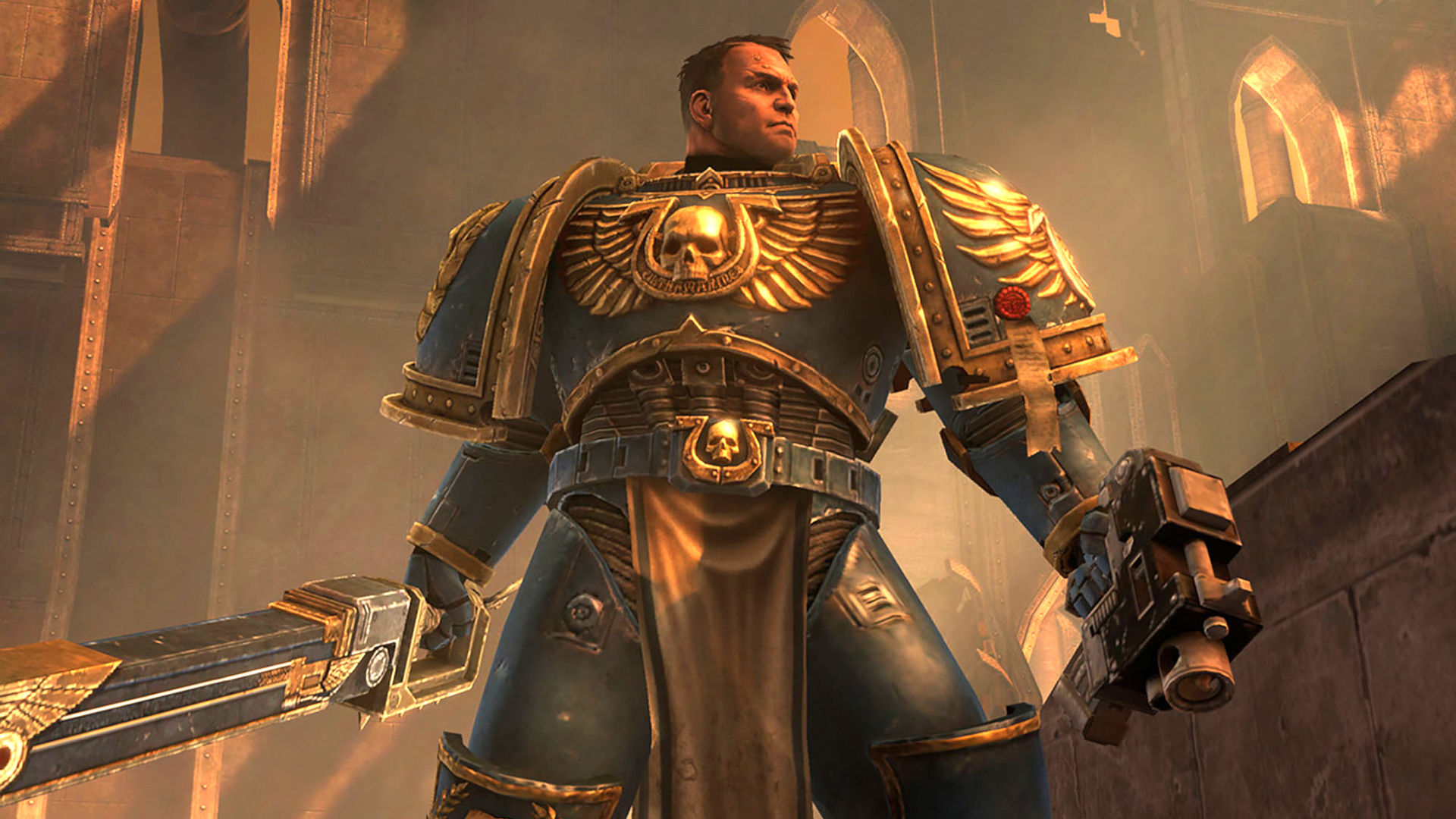
Warhammer 40,000 sure has a lot of loud, shouty men. From the augmented super-soldiers of Warhammer 40k: Space Marine to the stoic Imperial Navy captains of Battlefleet Gothic: Armada 2, it’s no surprise that the setting can be rather offputting to some.
This is a great shame, since, at its best, Warhammer 40k stands as some of the most compelling satire that the United Kingdom has ever produced. It lampoons everything from fascism, colonialism, imperialism, and classism all in one convenient grimdark package, courtesy of the developers and writers at Games Workshop. Like any great dystopia, the theocratic authoritarian regime of the Imperium of Man is darkly compelling, but the franchise loses something by failing to represent women and minorities in its games.
The Imperium spans billions of worlds, and yet the stories told about it seem to focus on a very specific subset of humanity. Stories are all the more meaningful when we see ourselves in them, and that’s equally true for stories in dark settings. By failing to embrace diversity, Warhammer 40k games are shooting themselves in the foot.
By failing to embrace diversity, Warhammer 40k games are shooting themselves in the foot
Unfortunately, the recent surge of Warhammer 40k games has done very little to rectify the franchise’s representation problem. With the exception of satisfying coop shooter Darktide, Warhammer 40k games seem to struggle when it comes to the representation of women. Take strategic XCOM-alike Warhammer 40,000: Chaos Gate - Demonhunters. Though two of your three advisors are women, every single soldier is male on account of Games Workshop’s purile rule forbidding women from joining the ranks of genetically enhanced warriors.
Contrast this with the likes of Halo: Infinite, where the Spartan supersoldiers are refreshingly diverse (not to mention customizable) and you’ll begin to see the problem. With the representation of women slowly but surely becoming better in video games, Warhammer 40,000 looks more and more backwards by comparison.
Suns and starships

I’ve adored Warhammer 40k ever since I first encountered it at university. However, this love affair was not to begin through the setting’s nauseatingly macho Space Marines, rather it would come through a Tabletop Roleplaying game called Rogue Trader. In this game, you play as the crew of one of Warhammer 40k’s massive interstellar spaceships. One of you takes on the role of the eponymous Rogue Trader, a spaceship captain with the dystopian sci-fi equivalent of a letter of marque, giving them the mandate to explore the cold void of space.
Owlcat Games, developers of lavish and well-received fantasy tabletop adaptation Pathfinder: Wrath of the Righteous, have since turned their attention to Rogue Trader, aiming to craft their own take on space exploration and empire building in the grim darkness of the 41st Millennium.
This could be a massive step forward for Warhammer 40k
The Alpha alone is enough to convince me that this game is very much a step in the right direction for Warhammer 40k titles. Not only does the RPG’s character creator allow you to build a space captain to suit your own narrative interests, but the supporting characters are diverse and fascinating, reminiscent of the likes of Mass Effect in their charm and depth.
What’s more, these supporting characters include women and people of color. What’s more, there was even some dialogue that hinted at the possibility of same-gender relationships in the game. This would be a massive step forward for Warhammer 40k which, across its vast expanse of lore and content has only ever afforded LGBTQ+ narratives limited space on the narrative periphery, at best, refraining from framing its characters beyond the constraints of heteronormativity.
Representation matters

I love the prospect of space exploration against the backdrop of a gritty and uncompromising setting. Dystopias, especially, are at their most compelling when the full range of human experience and expression is illuminated against that very backdrop.
This was one of the best facets of Cyberpunk 2077 and why Citizen Sleeper and The Last Worker offered such memorable takes on the excesses of capitalism. Dystopias are compelling because of the people in them and because of the ways in which those people respond to the horrors around them. After all, Half-Life 2 would have been far worse if it were just about Gordon Freeman.
It is my hope that Warhammer 40,000 Rogue Trader will inspire other developers who wish to use Games Workshop’s license to be more creative with their characters. The Imperium of Man is vast and offers a near-limitless well of humanity to draw from. If more writers and developers choose to take advantage of this, then the games they craft will be all the richer for it.







